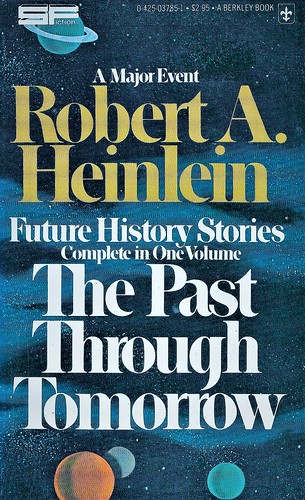Fear of the future
Future History #FutureHistory

In the 1991 Star Trek film, “The Undiscovered Country,” the fictional crew of the Starship Enterprise, galivant across the universe in pursuit of a new peace treaty with their lifelong enemies, the Klingon Empire. Understandably, some in the governance of the Starfleet Federation and Klingon Empire are cautiously enthusiastic about the tenuous new proposal for peace while others within both realms are fearful that the bold new world envisioned will be detrimental and destructive to all that they know and love. Amid this conflict, the captain of the Enterprise, James T, Kirk, whom himself struggled with the implications of the strange, new future that was being forged before his eyes, stated, “Some people believe the future means the end of history.”
In many ways the early Christians felt the same way. The history of the church as told in Acts reflects this tension and fear of losing the past while embracing an unknown future. Many of the apostles and elders of the church in Jerusalem appropriately held tightly to their sacred Jewish traditions. Their fear of losing that past actually motivated some to resist the growth and spread of the church and sanction called church leaders who felt otherwise.
All of the first Christians were distinctively Jewish. The miraculous event of the Holy Spirit and speaking in tongues that gave rise to the Church takes place on the Jewish feast of Pentecost and describes the gathering of faithful Jews from all over the known world. Jesus was Jewish as were all of his disciples and the rich heritage of their Jewish past was very important to the early church. Then some of the Apostles—namely Peter, Paul, and Barnabas—did the unthinkable. They started baptizing and making Christians among the Gentiles without requiring them to first become Jews. The future of the Church was interpreted by many as a the rejection of, if not the actual elimination of their history and they pushed back.
Throughout the approximately 2000 years of Church history that followed the miracle of Pentecost in Acts 2 and Jerusalem Council in Acts 15, this same theme has permeated the experience of faith as lived in the Church. As the world has changed, many in the church have tried vehemently to hold on to the past they know and love with outright hostility toward an unknown future. At the heart of the tension is a genuine—albeit unspoken and probably unconscious—fear that future will destroy the beloved and trusted past.
This fear becomes even more pronounced as faithful, careful, and prayerful analysis of the past seeks to understand history and its negative impact on the present promotes individuals to reinterpret the past through the contextual lens of knowledge, wisdom, and insight unavailable previously. For those whose understanding of history is challenged, it can feel as if history is actually being erased. Although this is not the case, it is a perception that can easily anger people and even motivate hostility toward the arc of history as it bends towards an unknown future.
The beauty of Acts 15 is that it shows how the Church can engage the understandable tension between a beloved past and uncertain future. They gathered, they prayed, they listened, and they sought the leading of the Holy Spirit. Ultimately, they realized that God’s Spirit, not their entrenched historical opinions and cherished heritage was driving the Church forward into the future. Yet, they also recognized that the future would be meaningless without a clear understanding and appreciation of the past from which the Church came. There is no need to fear the future if one truly embraces the Spirit of God in prayer, worship, study, and fidelity to family of faith as lived in the name of Jesus Christ!
This article originally appeared on Las Cruces Sun-News: Fear of the future